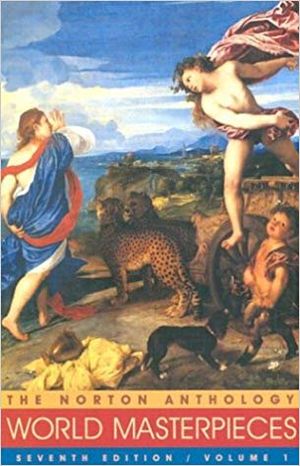This course is composed of three requirements: reading, writing, and tests. Each requirement will be on-going throughout the semester, will require regular contributions, and may be comprised of various assignments. Tests will be in-class writings that emphasize a small selection of texts.
Reading
Each lesson’s major focus will be reading primary texts (the literature) and secondary texts (critical response to the literature). Reading quizzes will test your knowledge of the materials, focusing on factual details like plot points, rather than interpretative readings. Students should take thorough notes as they read—like character names, plot points, and other details—that will help them on quizzes and later analysis of the texts in their writing.
Reading quizzes and in-class assignments cannot be made up for any reason.
Writing
Students’ knowledge of the course texts will be tested at the end of each lesson through in-class writing. These will test your knowledge of the subject matter (texts, lecture material, and vocabulary), your ability to synthesize this material, and your creativity in going beyond the discussion and lecture materials. Grades will be based upon objective knowledge of the material, thoroughness, depth of insight, precision, and originality.[2]
Short Lit-Crit Response
Due before midterm, this paper will have students research and write about one of the texts we have studied in class. Choose the text you would like to investigate further, find a secondary, critical article, and write your two-page response. This assignment may be repeated once for extra credit .
Required Materials

Our study of World Literature this semester will use either of the following:
- Mack, Maynard, ed. (1999). Norton Anthology of World Masterpieces: Literature of Western Culture Through the Renaissance. The Western Tradition. 1 (Seventh ed.). New York: W. W. Norton.
- Lawall, Sarah, ed. (2003). The Norton Anthology of World Literature: Beginnings to A.D. 100. A (2nd ed.). New York: W. W. Norton.
Both of these books are out-of-print, but you should have no problem acquiring one of them, either through the Amazon affiliate[3] links above or another bookstore. These books contain the specific translations that I will be referencing in-class and on exams, so one of the two texts above is required.[4] While readily available, other translations will just be confusing and cause you unnecessary difficulty.
Your course book(s) or readings should always accompany you to class, as we will make heavy use of them in our daily discussions. Please do not come to class without it: we need the texts for class activities, in-class writing, and all aspects of our study. PDFs must be printed if they are used in class—this includes exams. Failure to do so will earn you an absence .
You should also bring an ink interface of some sort, as well as dead trees on which to take notes. Notes should not only reflect good listening skills, but individual interest in every topic discussed in class.
notes
- ↑ This is the general percentage breakdown for these requirements. As I use a point system for evaluation, the percentages are just an estimate.
- ↑ See the various resources available on this web site to help. They should assist in exam prep and provide guidance for your study throughout the semester.
- ↑ As an Amazon Associate I earn from qualifying purchases; links to Amazon contain my associate ID. All revenue earned goes to support the costs associated with maintaining this web site.
- ↑ Get the cheapest one, as one is no better or worse than the other. And the good news is you can sell the book back to Amazon at the end of the term and make most of your money back.
| 🕒 08-5-2021 | 📆 Make an Appointment | 💬 Ask a Question | 📣 Leave Feedback |


